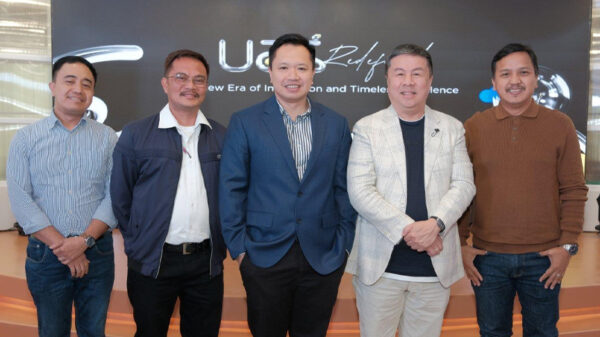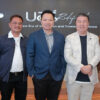Manila is quickly gaining the attention of global tech startups as an emerging hub for startups, landing in the 81-90 percentile of Startup Genome’s 2024 Global Startup Ecosystem Ranking. Not only that, the Philippines is also home to an estimated 1,100 startups, laying the groundwork for a colorful tech ecosystem. Hence, transparency on all fronts is key when launching an international business in the Philippines. That was the message of Afanassi Petrov, inDrive’s Business Development Manager SEA, to global startups looking to expand in the Philippines.
Petrov shared this advice during a panel session about the advantages of setting up a business in the Philippines at the Echelon Philippines 2024 (E27), a business conference focused on empowering all stakeholders in the tech industry.
Founded in 2013 in Yakutsk, inDrive began to respond to unfair fare hikes due to the harsh winters. With this, the global ride-hailing app established a transparent business model that promotes lower and stabler prices. The model achieves this by avoiding algorithms to determine riding fares and implement surge charges.
“The difference of inDrive in the region is that we’re providing freedom for passengers and drivers to choose for themselves,” Petrov said. Additionally, inDrive is fervent in keeping both ride-hailing app drivers and passengers safe while on the road. This is evident in how passengers are given multiple options on drivers’ ratings, car models, and road histories before accepting a ride. This goes both ways as drivers may select passengers based on their profiles, pick-up and drop-off points, and desired routes.
Expanding in the Philippines
inDrive Business Development Manager SEA Afanassi Petrov shares insights on the advantages of launching and setting up businesses in the Philippines during the Echelon Philippines 2024 panel discussion.
Petrov led inDrive’s expansion in Pakistan before heading for the Philippines. Here, inDrive found that the country has a diverse and robust market with a demand for more transportation options. Hence, the app conducted thorough market research into the needs of Filipino passengers. The study also includes growth potential, competitive landscape, transportation sector developments, technology infrastructure, government regulations, and ways to navigate local cultural nuances.
Afterward, inDrive touched base with local communities to test if Filipinos were interested in the app and if they felt the business model suited their needs. Petrov said, “Of course, we found a lot of interest from local communities, especially from the drivers’ side, which affirmed inDrive’s decision to obtain licenses and file for operations here.”
Transparency and building long-lasting stakeholder relationships have remained in mind since inDrive’s local relaunch last June. The app has since partnered with the transportation group Laban TNVS to address the concerns of their partner drivers and implement lasting changes in their systems. With this in mind, inDrive has been providing its partner drivers its services free of charge for the first two to six months of operations. Afterward, it will implement a 10% service charge –– the lowest in the local market.
inDrive also teamed up with Toyota Quezon Avenue branch and RideSecure Car Care Center to guarantee safer roads for their drivers through benefits like free 21-point check-ups, Preventative Maintenance Service promo packages, and comprehensive insurance coverage.
By walking its talk, inDrive has enjoyed steady local growth since June with a 75% ride increase. Active users and drivers have also increased by 86% and 96%, respectively.
Staying ahead of the curb and complying with regulations
Petrov also emphasized that it is vital for global startups to remain updated with industry trends and developments. In the tech and ride-hailing industries, there have been talks of using artificial intelligence in operations and incorporating electric vehicles as a sustainable transportation option.
inDrive is ahead of the curb in these discussions as the app has been using AI in its pricing feature to calibrate price efficiency, the number of drivers near the pickup point, passenger orders, and weather conditions. As for electric vehicles, the company has launched fleets of electric cars and bikes in other global markets such as India, Pakistan, Indonesia, and Thailand and is determining whether the Philippines has the market demand for this.
“It depends on how the car industry will change in the country. For example, if we see rapid growth and share of EV vehicles, we will also onboard our drivers of EV vehicles in our application and we will [explore] options on how we can support such drivers,” Petrov added.
Petrov also advises startups to fully comply with government regulations to build trust with local stakeholders. This way, both startups and local stakeholders can work hand-in-hand to create a more dynamic ecosystem for the tech industry. “Compliance is an essential part of your business in the country… It’s a way to build trust between you and other stakeholders. That’s why I strongly suggest starting by searching how they regulate things in the country.”
In conclusion, transparency and compliance are crucial to success in this rapidly evolving market. By fostering open communication, building strong relationships with local stakeholders, and staying ahead of industry trends, startups can not only navigate the challenges of expansion but also thrive in the dynamic tech landscape of the Philippines. As inDrive has demonstrated through its transparent business model and strategic partnerships, a commitment to integrity and innovation can drive long-term growth and contribute to the overall development of the tech ecosystem in the country.










































































































